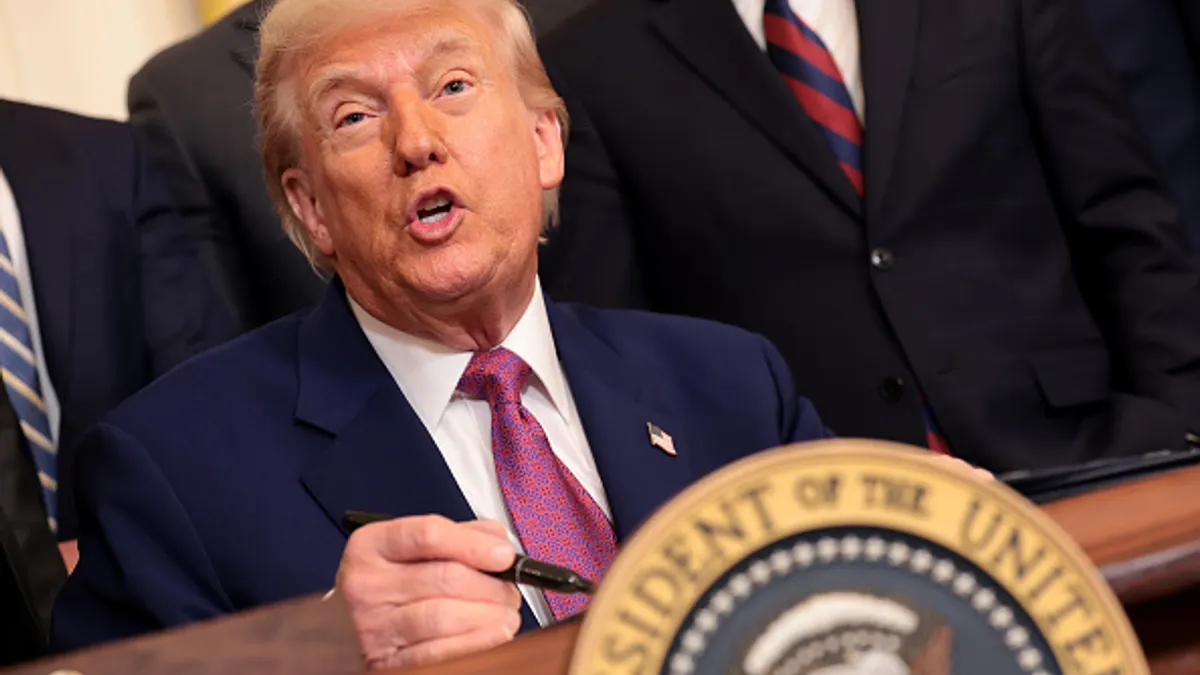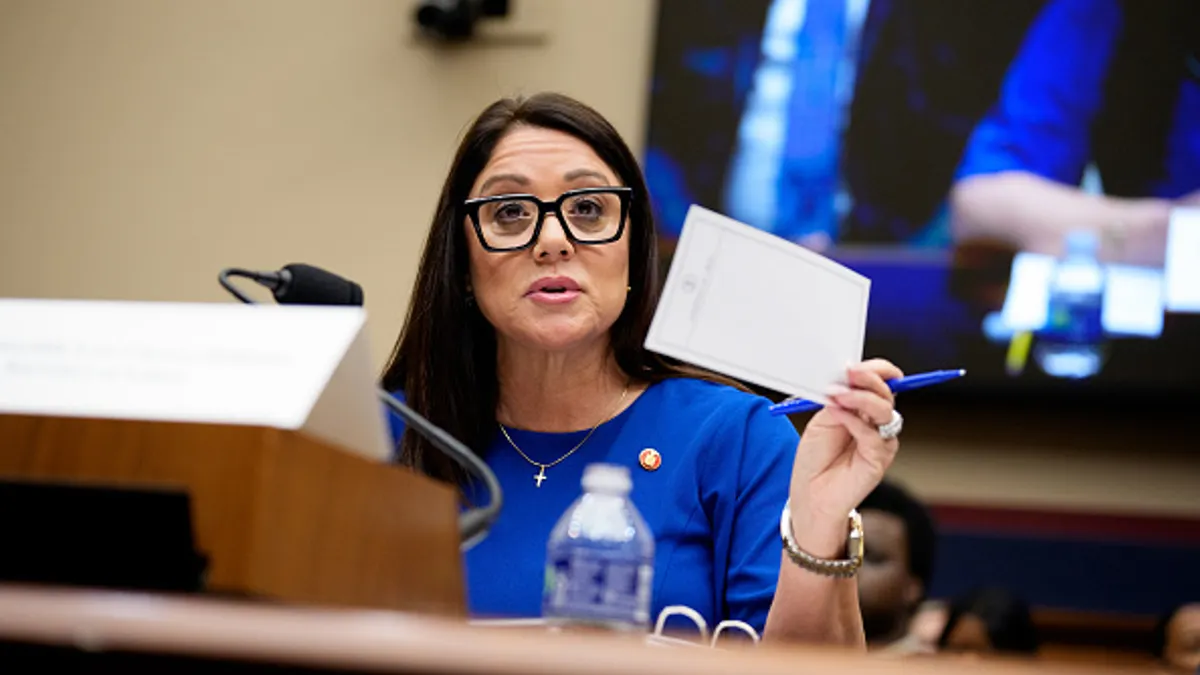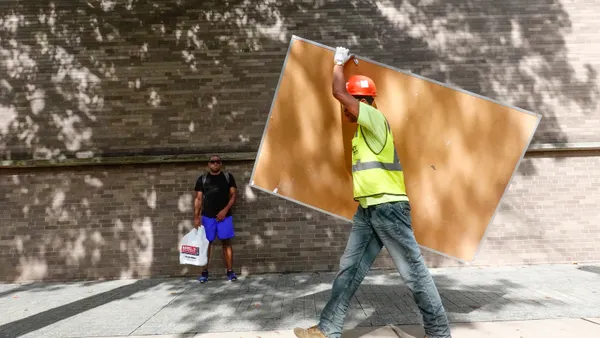This feature is a part of "The Dotted Line" series, which takes an in-depth look at the complex legal landscape of the construction industry. To view the entire series, click here.
With construction workers exhibiting some of the highest vaccine hesitancy rates of any occupation, contractors are increasingly finding themselves being pulled between the personal preferences of their employees in a tight labor market and owner requirements that all workers on their jobsites be inoculated against COVID-19.
"Contractors are certainly in an unenviable position," said employment attorney Amanda Baer, a partner at Mirick, O'Connell, DeMallie & Lougee, LLP. "They could be entirely out of work if they don't comply with owners' vaccination mandates."
They're also necessarily wearing two hats in this situation, one as a party to a contract for with the owner, and another as an employer of their workers, said Lauren Blair, an attorney and employment law consultant in Chicago. "They have to approach the issue from both angles," she said.
But while the tug of war between worker hesitancy and owner edicts has been causing anxiety for many contractors over whether they'll be able to staff their jobs, attorneys say there are options — and even advantages — for construction firms to consider in the current situation.
"I kind of like it when the owner says we have a mandate," said D. Albert Brannen, a partner at law firm Fisher Phillips, during a webinar on vaccine policies hosted by the Associated General Contractors of America last week. "It removes that employee relations issue that we've all been dancing around, because everyone in construction knows that if the owner is not happy, we don't get any more jobs."
Or as Baer puts it, "In those situations, it's not politics, it's just business."
A 'business necessity'
Aside from not making contractors out to be the bad guys for "forcing" workers to do something against their will, there may also be business and legal advantages for the construction firms that can convince their workers to roll up their sleeves for a jab.
"For some contractors, a vaccine mandate may be the most efficient way to ensure compliance and may place them at a competitive bidding advantage," said Robert W. Sanders, a senior associate at law firm Husch Blackwell, LLP. "Given that more and more project owners are implementing vaccine mandates, contractors likely have a legitimate business purpose to inquire about their workers' vaccine status."
That last element is key, since any inquiry about vaccine status, or employer requirements to get a shot, must be "job-related and consistent with business necessity," as required the Americans with Disabilities Act and the Equal Employment Opportunity Commission's threshold for instituting a vaccine mandate.
But it also means contractors have an increasingly vested interest in their workers becoming inoculated. "Employers should be highly motivated to increase the number of people in the workplace they get vaccinated," Brannen said.
Mandates from contractors, too
Contractors that are considering drafting their own vaccine requirements for employees now have stronger legal footing for doing so via the Food and Drug Administration's recent full approval of the Pfizer vaccine, as well as plenty of supporting case law, lawyers say. "Vaccine mandates are lawful in the United States, and have been upheld repeatedly by the Supreme Court," said J.R. Skrabanek, a partner at law firm Thompson & Skrabanek, PLLC.
Any mandated vaccination policy contractors adopt internally for their own workers should be in writing, based on the EEOC's guidelines and provide employees options to seek accommodation if they have a legitimate medical reason or sincerely held religious belief for not getting the shots.
Accommodation might take the form of allowing non-vaccinated employees to continue to work from home until the end of the pandemic, weekly testing or requiring them to wear a mask in the office. However, any incentives offered to other employees must also be available to them, perhaps by watching a COVID-19 safety video or reviewing CDC literature. All employees should acknowledged in writing that they've received, understand and will comply with the policy. Finally, if you're going to require workers to get the shot or undertake other training to comply, you should pay them for that time.
"Contractors should require their workforce to be vaccinated by a certain date, and follow up in writing to ensure compliance," Skrabanek said. "They'd also be wise to allow paid time off for workers who need to make vaccination appointments."
Use a soft stick
But even though contractors can legally require workers to comply with owner mandates, as well as implement their own internal vaccine requirements, attorneys say a compulsory approach should still be contractors' last resort. With 40% of construction workers consistently saying that they don't want the vaccine, contractors may be better off instituting a soft sell first.
"It's a double-edged sword," said Carol A. Sigmond, a partner in the construction practice group at law firm Greenspoon Marder LLP. "The real issue confronting the industry is the labor shortage. If employers impose a mandate, they have to be concerned about losing unvaccinated workers. At the same time, a smaller vaccinated workforce might be more reliable over the long run than a largely unvaccinated workforce that gets sick."
For those reasons, construction attorneys are consistently telling their clients to try to encourage their workers to get the vaccine first, before imposing a mandate from above.
"Contractors, like most employers, must balance the need to have employees vaccinated and the current job market," said Chase Hattaway, a partner in the construction practice at law firm RumbergerKirk. "Some companies may have no choice, while others may be better off encouraging employees to receive the vaccine, and requiring unvaccinated employees to take other steps to prevent the spread of the disease. These companies may also want to offer incentives to employees to encourage employees to receive the vaccine voluntarily."
Giving incentives
Those incentives may include something as small as a restaurant gift card, reasonable cash bonuses or extra paid time off. But contractors actually shouldn't offer so much on this front that it would be perceived as punishing employees who chooses not to get the vaccine.
"If the incentive is too high, it could look punitive or coercive," Brannen said.
Another way to encourage vaccination is through education. Many contractors and attorneys note that workers are often uncertain whom they should believe regarding information about vaccines, and are often skeptical when given the standard referral to guidance from the Centers for Disease Control. Some firms have had success by bringing in health professionals to talk with workers about the vaccines, a step that can de-politicize the issue.
"There's all sorts of information and disinformation out there. People don't really know who to trust," Brannen said. "In order to move the needle in your workplace, you need some kind of targeted informational campaign where you address concerns, questions and misconceptions."
Who's vaccinated, who's not
Critical in any approach to a vaccine policy, whether mandated or not, is establishing a baseline for each worker's vaccination status. While contractors have a clear business reason for requesting that information, how they handle it once they receive it is a detail they need to get right in the process.
"Ideally, the contractor would get a copy of the employee's vaccination card," said Jorge Piedra, a construction attorney and partner at Kozyak Tropin & Throckmorton. "If that is not possible, then a written affirmation from the employee that they are vaccinated should be enough.”
Charles Krugel, a management side labor and employment attorney based in Chicago, said it's imperative to keep that record in a different file from employees' main personnel files.
"Keep these in the same way you'd store medical or immigration verification records," Krugel said. "I'd suggest that the vaccine cards be separately stored and with some sort of security like lock and key or encryption."
Also, while attesting to overall worker vaccination levels may be required to satisfy owner mandates, attorneys caution against disclosing specific vaccine information to a third party.
"Contracts may include specific documentation requirements, which should be completed to the extent they are lawful," Sanders said. "Contractors should never agree to disclose individual employee’s vaccination status."
____________________________________________________________
The Dotted Line series is brought to you by AIA Contract Documents®, a recognized leader in design and construction contracts. To learn more about their 200+ contracts, and to access free resources, visit their website here. AIA Contract Documents has no influence over Construction Dive's coverage within the articles, and content does not reflect the views or opinions of The American Institute of Architects, AIA Contract Documents or its employees.














